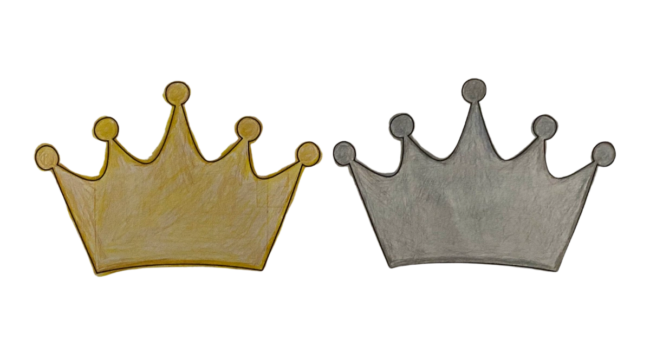
By Jane Knox
June was the month we celebrate Father’s Day. The storyteller in me desires to honor Father’s Day with an exploration of a universal story. This is an opportunity for me to dive deeper into the meaning of the father figure, both universally and personally. This month, I’m reflecting on the archetypal father illustrated in The Complete Grimm’s Fairytales called THE TWELVE HUNTSMEN. The tale has opposing views of fathers represented by two different father figures––kings––in the story. The fairy tale illustrates how the kings play the role of father quite differently.
In this tale, a princess falls in love with a prince who visits her kingdom. He falls in love with her, and they are betrothed. Shortly after, news reaches the prince that his father is dying. His father wants him to return home. When the prince arrives at his father’s bedside, his father, the king, utters this last request.
“‘Dearest son,’” the king said to him, “‘I wanted to see you one more time before my end. Promise me that you shall marry according to my will.’” “And he named a certain king’s daughter who was to become his wife.”
Because of the authoritarian nature of this patriarchal father, the prince feels bound to honor his dying father’s wishes. He obeys his father’s demands dismissing his own desires. A wedding is then planned to please the father.
When the princess hears this news, she is overcome with grief. Her father is a king who represents another kind of fathering orientation. As opposed to the prince’s father, he says he will do whatever he can to support his daughter in her heart’s desire, which is to marry the prince.
“‘If it’s possible,’ said the king, ‘your wish shall be fulfilled.’”
The princess devised a plan to reunite her with the prince. Her father helps her find eleven young women, and twelve huntsmen outfits. The princess becomes the twelfth huntsman. The twelve women in disguise travel to the beloved prince’s court and are accepted as his huntsmen. Eventually, the princess becomes known to the prince, and he remembers his love for her. He cancels the other wedding and marries her.
In this fairy tale, one father exacts a painful promise of obedience from his child requiring a sacrifice. The king’s offspring is expected to obey and prove his loyalty. The other father supports his daughter’s creative strategy to follow her heart and have her longing fulfilled. He sends his soldiers out to further her imaginative solution and he assists her in pursuing her plan.
The father archetype contains polarities. These aspects are the demanding, authoritarian father and the one who supports his offspring’s desires and dreams. Would the princess in the story have given up if she had the authoritarian father? I wonder if that would have changed the outcome of the story. What do you think?
I think women like myself in patriarchal cultures, and like the princess in THE TWELVE HUNTSMEN, find ways, whenever possible, to use creative strategies to pursue their dreams and passions. We find ways to do this despite the authoritarian characteristics of the father figure.
A friend, and once colleague of mine told me a story about her father. He demonstrated the dichotomy of the father archetype: control and support. She desired to become a medical doctor. Her father told her he could not support her aspirations because he did not see how she could marry, have children and run a household successfully if she were a doctor. He would, however, finance her college degree if she became a teacher. And so, she did. It amuses me that after she married and had two daughters, she went on to earn a doctorate degree. She has Dr. before her name after all.
What characteristics of the father archetype did your father display? Mostly control? Mostly support? A mix of both? Perhaps, like my father, he embodied the qualities of both fathers, the one who expected obedience, and the one who provided support for your plans. In his later years, my father gave me a hard time. He didn’t approve of my passion for personal growth and creative interests. He disapproved of the money I spent on travel and taking various classes and workshops. Of course, since I earned my own money, he was powerless to interfere with my choices and I have always pursued my passions.
But I smile when I think of how he encouraged me not to follow a traditional role for a female. My father used to say, “Jane you better never marry; you don’t like to cook or do housework.” He encouraged my going to college and I lived at home during most of my undergraduate years. Dad made sure I had a car and that it was filled up with gas. He also made my breakfast and warmed up the car for me on cold winter days. It pleased my father that I became a teacher.
Thinking of Father’s Day this year, and reading THE TWELVE HUNTSMEN, has helped me gain insights into the archetype of father. Now, I appreciate myself for not giving up on my dreams and goals, despite my father’s disapproval. I am also appreciating how supportive of me my father was. He helped me in ways that he could provide support. This story reminds me of how, as women, we do not have to give up, and we do not have to obey authoritarian fathers. We can use our creativity to find ways to stay true to ourselves in the face of opposition.
This is cross-posted from Jane Knox’s blog The Ageless Goddess.
















